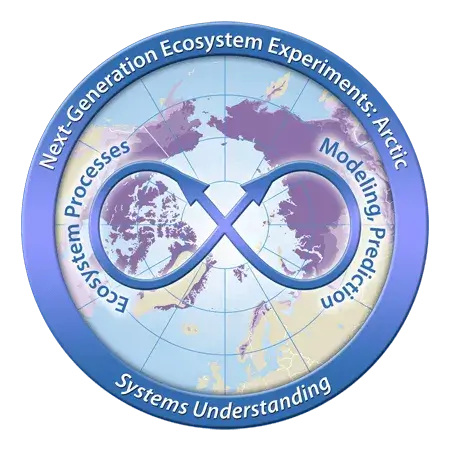Gallagher, Rachael V., et al. “Open Science Principles for Accelerating Trait-Based Science across the Tree of Life”. Nature Ecology & Evolution, vol. 4, no. 3, 2020, pp. 294-03, https://doi.org/10.1038/s41559-020-1109-6.
Publications
Displaying 41 - 60 of 65
By year of publication, then alphabetical by title
- Jan, Ahmad, and Scott L. Painter. “Permafrost Thermal Conditions Are Sensitive to Shifts in Snow Timing”. Environmental Research Letters, vol. 15, no. 8, 2020, p. 084026, https://doi.org/10.1088/1748-9326/ab8ec4.
- Lehmann, Johannes, et al. “Persistence of Soil Organic Carbon Caused by Functional Complexity”. Nature Geoscience, vol. 13, no. 8, 2020, pp. 529-34, https://doi.org/10.1038/s41561-020-0612-3.
- Schaefer, Kevin M., et al. “Potential Impacts of Mercury Released from Thawing Permafrost”. Nature Communications, vol. 11, no. 1, 2020, https://doi.org/10.1038/s41467-020-18398-5.
- Wang, Kang, et al. “Sensitivity Evaluation of the Kudryavtsev Permafrost Model”. Science of The Total Environment, vol. 720, 2020, p. 137538, https://doi.org/10.1016/j.scitotenv.2020.137538.
- Andresen, Christian G., et al. “Soil Moisture and Hydrology Projections of the Permafrost Region – a Model Intercomparison”. The Cryosphere, vol. 14, no. 2, 2020, pp. 445-59, https://doi.org/10.5194/tc-14-445-2020.
- Bergmann, Joana, et al. “The Fungal Collaboration Gradient Dominates the Root Economics Space in Plants”. Science Advances, vol. 6, no. 27, 2020, https://doi.org/10.1126/sciadv.aba3756.
- Andersen, Jeremiah K., et al. “The State of the Climate in 2019: The Arctic”. Bulletin of the American Meteorological Society, vol. 101, no. 8, 2020, pp. S239 - S286, https://doi.org/10.1175/BAMS-D-20-0086.1.
- Conroy, Nathan Alec, et al. “Timing and Duration of Hydrological Transitions in Arctic Polygonal Ground from Stable Isotopes”. Hydrological Processes, vol. 34, 2020, pp. 749-64, https://doi.org/10.1002/hyp.13623.
- Conroy, Nathan Alec, et al. “Timing and Duration of Hydrological Transitions in Arctic Polygonal Ground from Stable Isotopes”. Hydrological Processes, vol. 34, no. 3, 2020, pp. 749-64, https://doi.org/10.1002/hyp.13623.
- Kattge, Jens, et al. “TRY Plant Trait Database – Enhanced Coverage and Open Access”. Global Change Biology, vol. 26, 2020, pp. 119-88, https://doi.org/10.1111/gcb.14904.
- Collins, A. D., et al. “UAS LIDAR MAPPING OF AN ARCTIC TUNDRA WATERSHED: CHALLENGES AND OPPORTUNITIES”. The International Archives of the Photogrammetry, Remote Sensing and Spatial Information Sciences, vol. XLIV-M-2-2020, 2020, pp. 1-8, https://doi.org/10.5194/isprs-archives-xliv-m-2-2020-1-2020.
- Wales, Nathan A., et al. “Understanding the Relative Importance of Vertical and Horizontal Flow in Ice-Wedge Polygons”. Hydrology and Earth System Sciences, vol. 24, no. 3, 2020, pp. 1109-2, https://doi.org/10.5194/hess-24-1109-2020.
- Tang, Jinyun Y., and William J. Riley. “A Total Quasi-Steady-State Formulation of Substrate Uptake Kinetics in Complex Networks and an Example Application to Microbial Litter Decomposition”. Biogeosciences, vol. 10, no. 12, 2013, pp. 8329-51, https://doi.org/10.5194/bg-10-8329-201310.5194/bg-10-8329-2013-supplement.
- Skurikhin, Alexei N., et al. “Arctic Tundra Ice-Wedge Landscape Characterization by Active Contours Without Edges and Structural Analysis Using High-Resolution Satellite Imagery”. Remote Sensing Letters, vol. 4, no. 11, 2013, pp. 1077-86, https://doi.org/10.1080/2150704X.2013.840404.
- Dafflon, Baptiste, et al. “Electrical Conductivity Imaging of Active Layer and Permafrost in an Arctic Ecosystem, through Advanced Inversion of Electromagnetic Induction Data”. Vadose Zone Journal, vol. 12, no. 4, 2013, https://doi.org/10.2136/vzj2012.0161.
- Cunningham, Philip, et al. “Large-Eddy Simulations of Air Flow and Turbulence Within and Around Low-Aspect-Ratio Cylindrical Open-Top Chambers”. Journal of Applied Meteorology and Climatology, vol. 52, no. 8, 2013, pp. 1716-37, https://doi.org/10.1175/JAMC-D-12-041.1.
- Painter, Scott L., et al. “Modeling Challenges for Predicting Hydrologic Response to Degrading Permafrost”. Hydrogeology Journal, vol. 21, no. 1, 2013, pp. 221-4, https://doi.org/10.1007/s10040-012-0917-4.
- Frampton, Andrew, et al. “Permafrost Degradation and Subsurface-Flow Changes Caused by Surface Warming Trends”. Hydrogeology Journal, vol. 21, no. 1, 2013, pp. 271-80, https://doi.org/10.1007/s10040-012-0938-z.
- Hinzman, Larry D., et al. “Preface: Hydrogeology of Cold Regions”. Hydrogeology Journal, vol. 21, no. 1, 2013, pp. 1-4, https://doi.org/10.1007/s10040-012-0943-2.

